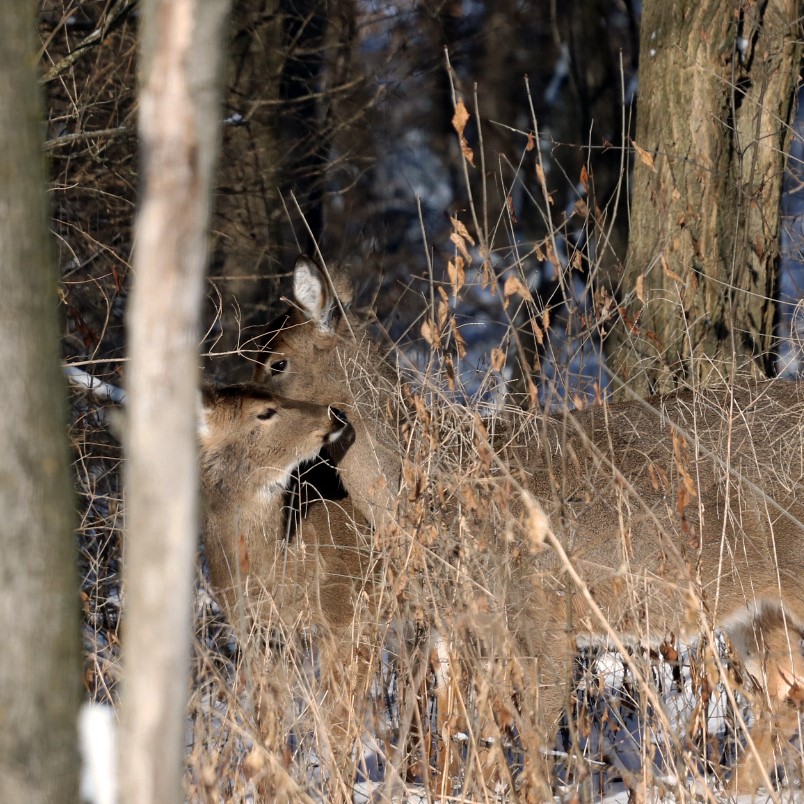

Deer pressure in Waukesha county has increased considerably in the last 10-15 years. Some areas, including parts of Pewaukee and Elm Grove, have severe deer pressure. If deer are hungry enough, they’ll try almost anything. There are many articles & reference books on this topic, but opinions and results vary drastically based on region.
It’s not uncommon to hear – “Why do the deer eat the hostas in MY yard, but my neighbor’s hostas look perfect?” Interestingly, deer are consistently unlikely to graze on slopes steeper than 30% – which explains why some hostas in hilly/steep yards in our area are untouched. Fencing, spray repellents, and dog traffic also alter deer behavior from one yard to the next.
Caging/wrapping trees helps tremendously. Correct application of repellents is useful, but the lowest maintenance and most reliable approach is to start by planting varieties that deer don’t want to eat.
For your consideration: There are some other, important factors that must be taken into account when selecting plants and sites for plantings. Don’t forget to consider the amount of light present in the desired planting area (full sun, part shade, shade); the presence of black walnut trees (juglone tolerant plants are needed if you have black walnut trees); and lastly, rabbits. Many Wisconsin landscape plants that are deer resistant are (unfortunately) attractive to rabbits. When in doubt, CAGE IT OUT!
Here is a list of our top, consistent performers for Waukesha yards with heavy deer pressure:
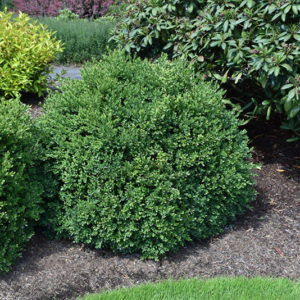
Green Velvet Boxwood and Green Mountain Boxwood are the two varieties that we love to plant in our Southeast Wisconsin landscapes. They are a broadleaf evergreen shrub that has small round leaves that stay green all winter long. These two varieties are both compact. Green Velvet is rounded, reaching a height of 3 to 4 feet fall and spread to about 3 feet wide. Green Mountain is pyramidal and grows taller, with age. Deer tend to leave this low shrub alone, which makes this a great selection for hedges, mass plantings and accents in the garden.
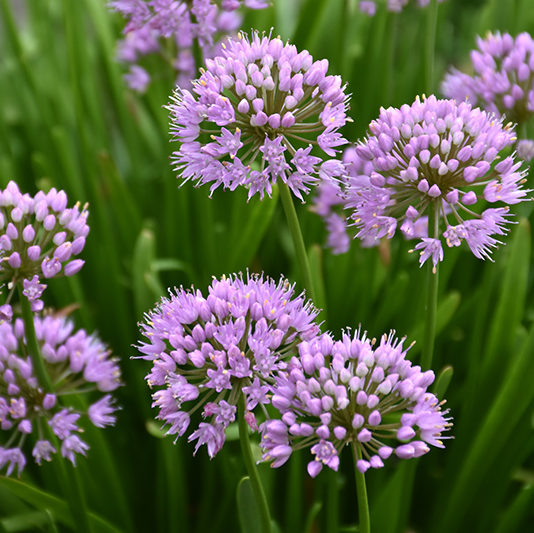
Allium, also known as flowering onion or ornamental chive, is an herbaceous perennial with a tall flower stalk held atop a low mound of narrow, dark green foliage. Allium have interesting globe shaped flowers that range in color from pink to lilac purple, and vary in height (18 inches to 3 feet) depending on the variety. Our favorites are Millenium Allium, Globemaster Allium, Pink Giant Allium and Summer Beauty Allium. This fragrant perennial is great for attracting butterflies, and the deer tend to leave this one alone.
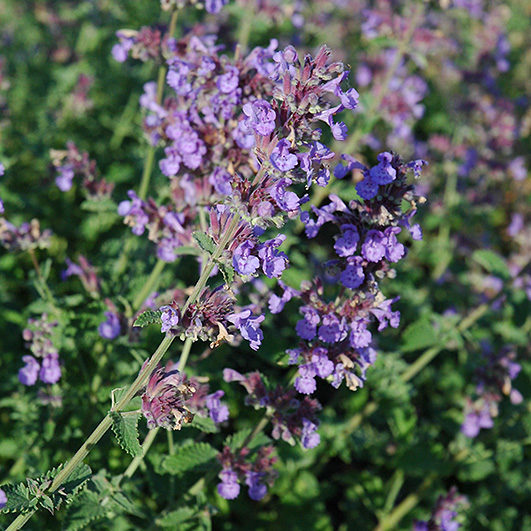
Walker’s Low Catmint is one of our go-to perennials that is perfect for group plantings and border edges. It has masses of beautiful, lightly-scented lavender purple flowers that spike above its grayish green foliage. Catmint is dense with a mounded form that reaches about 24 inches tall and spreads to about 24 inches wide (and beyond, if space permits). Catmint is great at attracting butterflies to your yard. It is not tasty to deer, who tend to leave this herbaceous perennial alone.
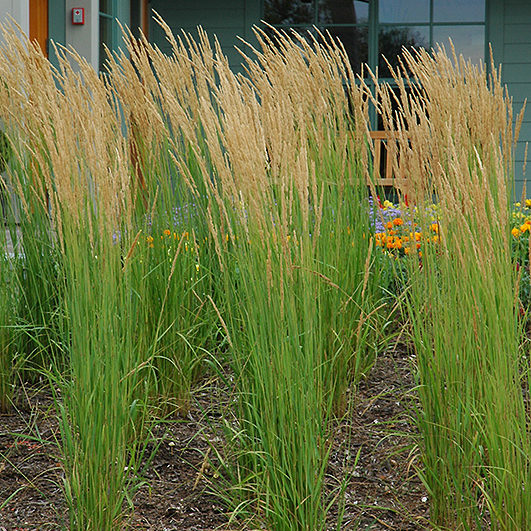
There are a wide variety of ornamental grasses to choose from when planning your landscape – lower, mounding varieties like sedges, tufted hair grass, blue fescue or Japanese forest grasses; upright varieties like maiden grasses, moor grasses or bluestems; and the upright varieties that have great plumes like feather reed grasses and fountain grasses. Whichever grass you choose, it will provide some added texture to your landscape and a huge advantage is that majority of them are deer-resistant! Our most requested grasses are Karl Foerster Reed Grass, Korean Feather Reed Grass, and Silver Feather Maiden Grass.
Upright Juniper: This is a superior choice for privacy screening when compared to Arborvitae, which are HIGHLY susceptible to deer damage. It is important to note that juniper require good drainage and sufficient sunlight in order to thrive. In recent years we have seen some yards where the deer are hungry enough to chew on juniper, even the very prickly/harsh textured varieties, like Star Power Juniper and Spartan Juniper.
St. John’s Wort: Ames St. John’s Wort is one of the few shade-tolerant, deer-resistant shrubs for our area. It has many good qualities, including compact form, low maintenance and golden yellow flowers in the summer. But, it is not always as resilient/consistent in urban conditions as some other plants.
Ferns: Deer aren’t interested in eating them, but ferns require reasonably rich soil and *patience*. They take several years to fill, mature, and establish. A good choice for shady, wooded yards with lots of deer. Some of our favorite ferns: Japanese Painted Fern, Ostrich Fern, Robust Male Fern
Spirea: A “bread and butter” staple that is rarely chewed on by anything. Some of our favorite Spireas: Double Play Big Bang Spirea, Magic Carpet Spirea, Goldflame Spirea
Retail Hours
Sun: CLOSED
Mon: CLOSED
Tue: 9:00am - 6:00pm
Wed: 9:00am - 6:00pm
Thu: 9:00am - 6:00pm
Fri: 9:00am - 6:00pm
Sat: 9:00am - 4:00pm